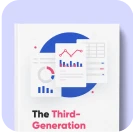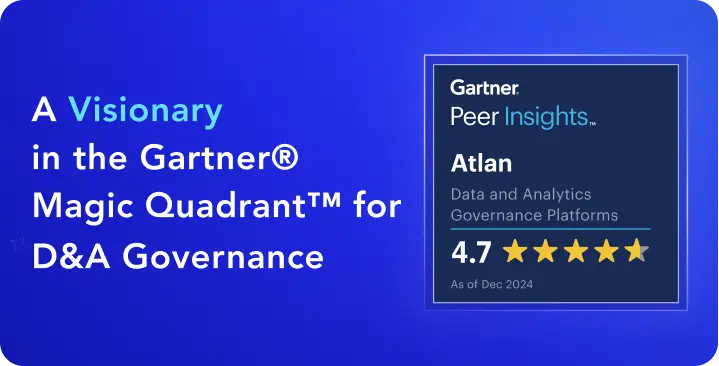Modern Data Culture: The Open Secret to Great Data Teams

Share this article
Though organizations invest heavily in modern data stacks, they should understand their data culture is equally important to uncover actionable insights that drive business success. In this blog, we explore how creating a positive and intentional data culture around your people generates the highest return on a data stack investment.
What is data culture? #
Data culture can be defined as the ways in which people at an organization collectively interact with data.
Why does data culture matter? #
Culture occurs whenever two or more people come together. Therefore, even if an organization doesn’t intentionally create a data culture, it exists. Data culture matters because it impacts an organization’s ability to effectively leverage the business intelligence a data stack can provide.
Consider the make-up of an organization’s data team. Every single person on this team, even those who have the same roles, has their own unique preferences and perspectives on how they look at and interact with, data. Creating a positive data culture involves establishing harmonious collective behavior and actions so organizations can make the best use of this valuable information. After all, data-driven teams have the potential to drive the greatest innovations, but the daily struggles of actually working together as a data team need to be recognized and managed.
Understanding poor data culture #
People are unique, and because of this, their behaviors and values will frequently be unaligned. When it comes to data, having no culture guidelines leads to the development of a poor data culture. A poor data culture can lead to inefficiencies and cause frustrations among team members, reducing morale and decreasing overall productivity.
Hallmarks of a poor data culture include:
- Lack of standards. When there are no agreed-upon naming conventions, vocabulary, and metrics, it leads to confusion and disorganization. For example, two people within the same organization may have different definitions of “Sales Figures” leading to differing conclusions from the same data set. This will require additional time spent reworking the numbers to get on the same page, taking precious time away from decision-making.
- Unfamiliarity with data tools. Not knowing how certain data tools work can instill fear in team members who will opt not to leverage them when they (and their organization) could really benefit from their use.
- Homogenous talent. Data teams that prioritize only one kind of talent over others (i.e., statistical programming language over communication) will find themselves hampered and unable to move forward at a brisk pace when challenges arise that require diverse skill sets.
- Misapplication of skills. Data engineers and data scientists are highly skilled, so their time is best spent on high-value tasks. But disorganization, along with not having the right automated tools in place, forces them to apply their skills to organizing and transforming data. This is far from optimal use of their talents.
- Mistrust. Data is most effective when it’s shared. But in a poor data culture environment, team members might withhold data from others (perhaps to shield themselves or their department from perceived consequences). Mistrust can also extend to external (second and third-party) data
How to create a healthy data culture #
Creating a healthy data culture involves getting your people to interpret data similarly and interact with it in a way that is harmonious and collaborative. To build the framework for a healthy data culture, an organization should:
- Improve data literacy
- Agree on a data charter
- Turn values into rituals
- Create standards
- Invest in tools and training
- Build trust through open discussions
- Share and collaborate
Improve data literacy. Not everyone at an organization will have a degree in data science or engineering. To empower team members of various skill levels to work with data, organizations need to invest in educational tools so everyone has baseline data literacy. This democratizes data, making it more accessible to your people so they can use it in a way to make smarter, more informed decisions. Organizations should explore the numerous online data literacy training programs/courses, and choose one to enroll their employees into.
Agree on a data charter. It’s important to get buy-in from team members and establish a set of values or goals (i.e., reducing repetitive tasks, decreasing dependencies on individuals) to lay the foundation of the data culture.
Turn values into rituals. As the saying goes, practice makes perfect. It isn’t enough to just have values; they must be routinely acted on to improve data culture. Experiment with new traditions and processes to determine which is most effective for your people. These can include presenting weekly demos, scheduling collaboration hours, and hosting hackathons.
Create standards. It’s important to get everyone on the same page when it comes to vocabulary, metrics, naming conventions, acceptable formats, etc. This requires creating a system of standards that govern how your people will manage and interpret data. Try setting up a business glossary that defines data-related terms and an online guidebook that establishes universal standards.
Invest in tools and training. Just like Picasso can’t paint without a brush, your people can’t be expected to work with data without the right tools. For e.g. at Apache Airflow for data orchestration, Snowflake for warehousing Atlan for metadata management, and similar best-of-breed tools to empower your people. Providing the tools, however, is just the beginning; your people will still need proper training so they can confidently use those tools to extract the real value data can provide.
Build trust through open discussions. Trust is an important element of a healthy data culture. And a way to build trust is to allow team members to freely speak about data (its management, handling, and interpretations), free from fear of negative consequences or judgment. Creating a reflection document and encouraging team members to add to it can serve as a forum for your people to communicate openly.
Share and collaborate. Equipped with the skills, tools, standards, and trust, team members can work better with data, more effectively share insights, and efficiently collaborate on actions that ultimately lead to greater business success. Also, it’s furthermore important that instead of jumping from tool to tool, work can happen wherever each team member lives, with less friction and less context-switching. Try deploying tools that enable this embedded collaboration.
Healthy data culture is the key to greater agility #
Data culture starts from within, but continued education plays a vital role in maintaining that culture, especially because the modern data stack is continuously evolving.
At Atlan, we were a data team first. We made investments in our data stack and in improving our data culture. Two years later, we became six times more agile as a result of these intentional actions.
Check out the full story on how we changed and improved our data culture at Atlan**.**
Modern data culture: Related reads #
- Modern data culture: The open secret to great data teams
- Data Catalog: Does Your Business Really Need One?
- What is modern data stack: History, components, platforms, and the future
- What is a modern data platform: Components, capabilities, and tools
- Modern data team 101: A roster of diverse talent
- Modern data catalogs: 5 essential features and evaluation guide
- Data Governance Committee 101: When Do You Need One?
Share this article












